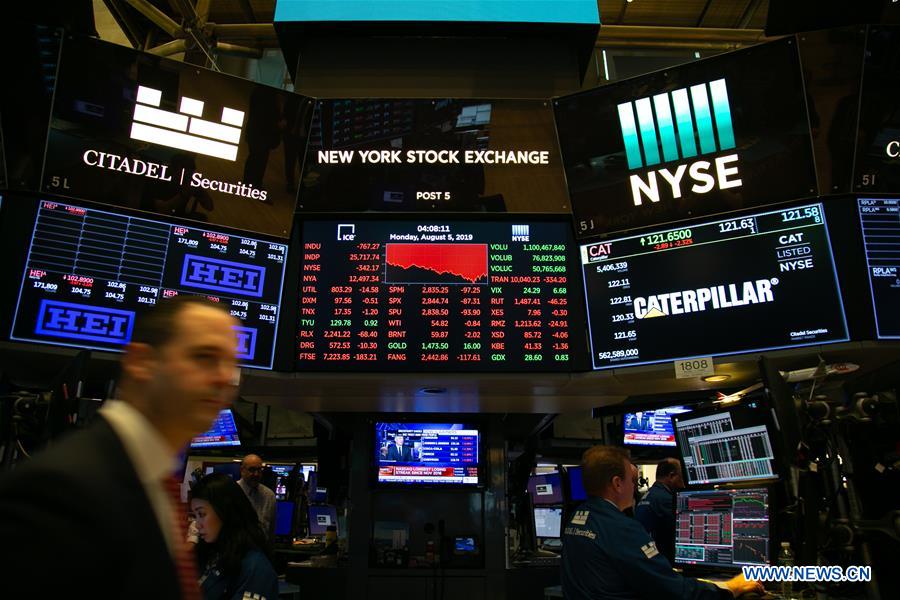 ?
?
Traders work at the New York Stock Exchange in New York, the United States, on Aug. 5, 2019. U.S. stocks plunged on Monday as investors worry that U.S. President Donald Trump's threatened new tariffs on Chinese imports will worsen trade prospects. The Dow Jones Industrial Average decreased 767.27 points, or 2.90 percent, to 25,717.74. The S&P 500 fell 87.31 points, or 2.98 percent, to 2,844.74. The Nasdaq Composite Index was down 278.03 points, or 3.47 percent, to 7,726.04. (Xinhua/Guo Peiran)
NEW YORK, Aug. 5 (Xinhua) -- U.S. stocks plunged on Monday as investors worry that U.S. President Donald Trump's threatened new tariffs on Chinese imports will worsen trade prospects.
The Dow Jones Industrial Average decreased 767.27 points, or 2.90 percent, to 25,717.74. The S&P 500 fell 87.31 points, or 2.98 percent, to 2,844.74. The Nasdaq Composite Index was down 278.03 points, or 3.47 percent, to 7,726.04.
All 11 primary S&P 500 sectors dropped, with technology and communication services sectors leading the decliners. All Dow components companies traded at red territory with Apple erasing 5.23 percent and leading the laggards.
The Cboe Volatility Index, widely considered to be the best fear gauge in the market, jumped nearly 40 percent to 24.59.
The market sell-off was triggered by participants' fear the trade tensions between the United States and China could further escalate.
Trump tweeted Thursday that he would place an additional 10 percent tariff on the remaining 300 billion U.S. dollars worth of Chinese imports starting on Sept. 1.
Several U.S. industry associations have voiced their opposition to the White House plan to impose more tariffs, arguing that such action will not facilitate negotiation but only hurt Americans.
Analysts have said that since the new tariffs would target retail items, along with other consumer goods, the impact on the U.S. economy will be more direct.
China's National Development and Reform Commission and the Ministry of Commerce said on Monday it would temporarily not rule out the possibility of levying additional tariffs on imported U.S. farm produce with deals made after Aug. 3, and related Chinese companies have halted purchases of U.S. farm produce.